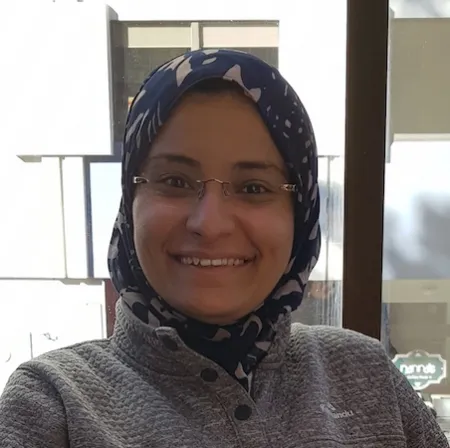Archetypes are typologies, groups, or categories that have similar characteristics and patterns. Archetype analysis, which involves looking for and understanding patterns in our data, is one method that can help researchers identify socio-environmental systems' dynamics and develop models. With its particular focus on using feedback loops as the leverage point for solving sustainability problems, the use of archetypes is growing in research and management.
In this tutorial video, Dr. Sondoss Elsawah explains how archetypes can be a useful tool for illuminating the dynamics of socio-environmental systems (SES) and for developing formal SES models. Here, Elsawah introduces the concept of archetypes, discusses some of the most common archetypes including their application in research, and describes how the use of archetypes can facilitate the socio-environmental modeling process.
This video originally aired at the beginning of a webcast titled, Use of Systems Thinking Archetypes in Socio-Environmental Modeling, which also included the perspectives of three well-known scholars, Laura Schmitt Olabisi, Renee Obringer, and Juan Rocha.
A list of publications referenced in this video is available here:
-
About the Presenters
Image

Sondoss Elsawah
Sondoss Elsawah is an Associate Professor of Systems Engineering and Information Technology, and the Director of the Capability Systems Centre at University of New South Wales. Her research program focuses on understanding the behavior of large complex problems and systemic risks that arise from the interactions between social, technological, and environmental systems. She is an expert on the application of systems thinking and system modeling methodologies to support decision making and education. Building on her academic achievements, Sondoss been recognized as a thought leader in her...
Image
Sondoss Elsawah
Sondoss Elsawah is an Associate Professor of Systems Engineering and Information Technology, and the Director of the Capability Systems Centre at University of New South Wales. Her research program focuses on understanding the behavior of large complex problems and systemic risks that arise from the interactions between social, technological, and environmental systems. She is an expert on the application of systems thinking and system modeling methodologies to support decision making and education. Building on her academic achievements, Sondoss been recognized as a thought leader in her scientific fields in Australia and internationally. For example, she is the Vice President of the Australian Society of Operations Research (ASOR) and was elected a distinguished Fellow of the Modelling and Simulation Society of Australia and New Zealand (MSSANZ). Sondoss is a senior editor of the Journal of Environmental Modelling and Software (A*) and the journal of Group Decision and Negotiation (A*).
Margaret A. Palmer
DirectorDr. Margaret A. Palmer is Director of SESYNC and a Distinguished University Professor at the University of Maryland, College Park. With a background in hydrology and ecology, Margaret contributes to testing and extending fundamental theory and empirical findings on aquatic ecosystem dynamics. She has worked extensively on the relationship between biodiversity and ecosystem processes, the biogeochemistry of streams and wetlands, and organism dispersal in aquatic ecosystems. She is an international expert on the restoration of streams and rivers and co-author of the book Foundations of...
Margaret A. Palmer
DirectorDr. Margaret A. Palmer is Director of SESYNC and a Distinguished University Professor at the University of Maryland, College Park. With a background in hydrology and ecology, Margaret contributes to testing and extending fundamental theory and empirical findings on aquatic ecosystem dynamics. She has worked extensively on the relationship between biodiversity and ecosystem processes, the biogeochemistry of streams and wetlands, and organism dispersal in aquatic ecosystems. She is an international expert on the restoration of streams and rivers and co-author of the book Foundations of Restoration Ecology. Margaret is also known for her work at the interface of water science and policy, having served as a technical advisor and innovator to help build solution-focused teams that solve problems with social, legal, policy and scientific aspects. She is extensively published (Google Scholar), has numerous awards, and remains actively engaged in science matters associated with national and local water policies and actions—particularly those associated with the Appalachians.
External Links:
https://scholar.google.com/citations?user=2nGk3QQAAAAJ&hl=en
